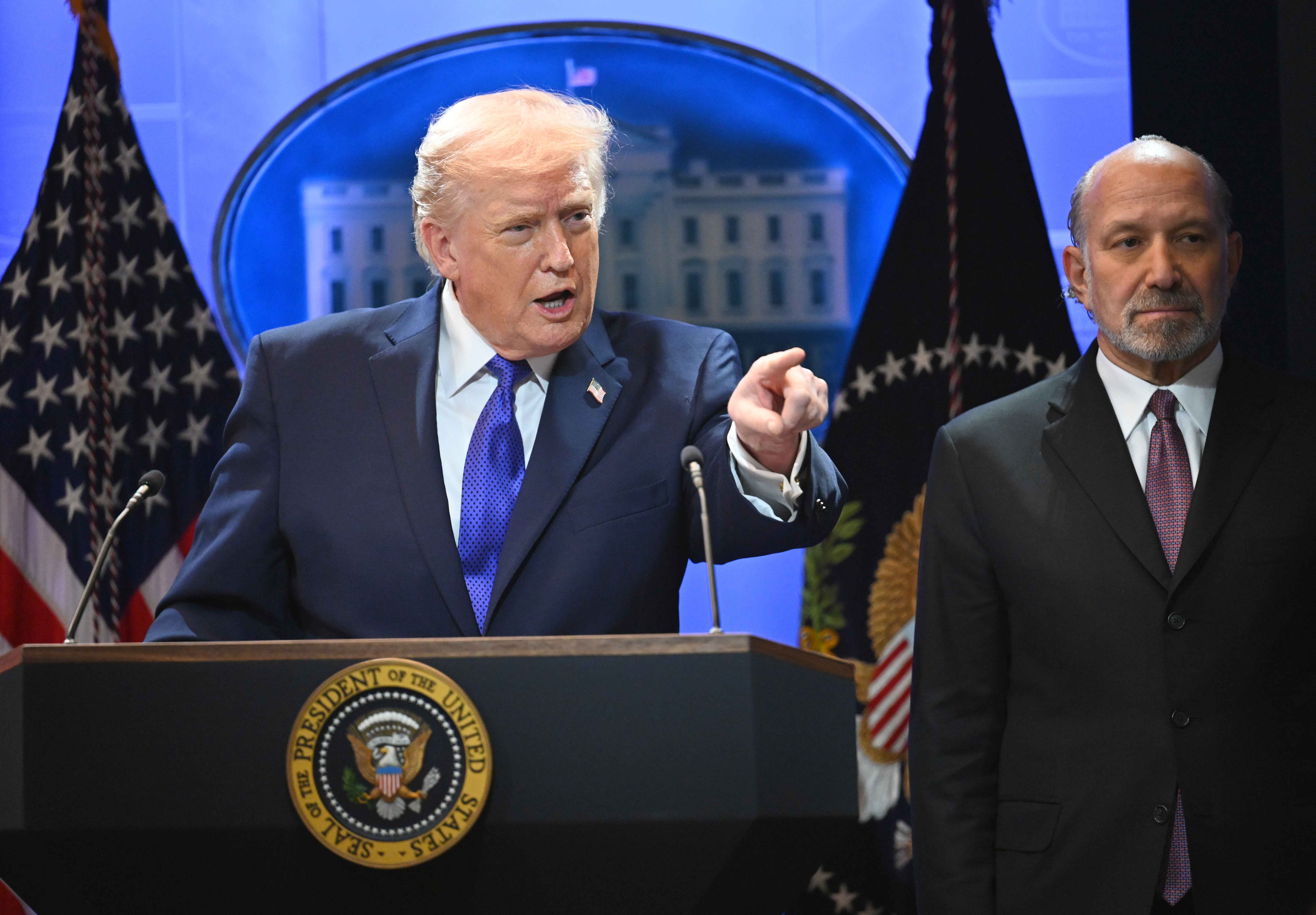Transcript: David Axelrod for "Face to Face"
Nancy Cordes: Hello and welcome to Face to Face. I'm Nancy Cordes and I'm joined by David Axelrod who of course is heading up the Obama campaign. We're here in your headquarters in Chicago and we've got this new poll out today from CBS News, New York Times, Quinnipiac, which has some numbers which must please you, showing the President up by six points in Ohio, up by six points in Florida, 11 points in Pennsylvania. Is this along the lines of what you've been seeing in your internal polling?
David Axelrod: Well it is, but Nancy one thing I've learned in a long career in this business is not to get too exhilarated about encouraging numbers, not to get too despairing about discouraging numbers, but to keep working. And this is going to be a close election in those states, will be a close election nationally. I think that those polls reflect the product of the President's work and the campaign's work. But we have more work to do.
Nancy Cordes: Does it mean that negative ads work? Because obviously you have advertised very heavily in some of these states, particularly attacking Mr. Romney on his record at Bain Capital.
David Axelrod: Well it could mean that negative ads don't work because they've run more negative ads against the President than we've run in this campaign. They've attacked the President relentlessly for months and months and months. Not just the Romney campaign but Super PACs, at a level that we've never seen before. And those arguments seem to be failing. So, you know, I believe that people are looking at this and they're saying, who has, in his focus, my concerns? An economy that's going to work for me? Who's going to help rebuild the middle class? Which is clearly the big issue in this election. And what is the experience that they bring, the lens through which they look at this? And as they focus in on these two candidates, I think that's resounding to the President's benefit.
Nancy Cordes: A few of the numbers that I found really interesting in this poll. First of all, a huge disparity between men and women. In Ohio, for example, the President wins among women by 20 points. Mr. Romney wins by I believe it was 10 points. How do you explain this huge difference between men and women?
David Axelrod: Well I think it's explained in part by a huge difference in their views on issues. The President's been a strong supporter of a woman's right to choose, the President's been a strong supporter of Planned Parenthood, the President believes that women should have, as part of their insurance policies, the right to coverage of contraception. Gov. Romney's on the other side of all those issues. The President was a proponent of the Ledbetter law to make sure that women have legal recourse to get equal pay for equal work. Gov. Romney's been indifferent to opposed to that law. Certainly hasn't embraced it and hasn't embraced the companion law we're fighting for. So, and then on fundamental issues like education, the President believes we need to invest in education as part of our future. Gov. Romney's plan would cut education by 20 percent. He'd roll back some of the student aid that the President has supported and yet he would support tax breaks for millionaires instead. These are issues I think women feel acutely and it's showing up in the polling.
Nancy Cordes: Why do you think, why do you think the President isn't doing better with men, and why isn't he doing better with whites who don't have a college education?
David Axelrod: Well first of all the gender gap, we've seen this gender gap before. So this isn't unusual. I think there are some issues to which women are particularly attuned. You know, education, choice, women's health and so on that motivates that vote. And I think that accounts for the disparity. But there's been a traditional drift in the Democratic direction among women voters. In terms of, I think we're making progress actually among non-college-educated voters. Those are folks who have the greatest stake in the kind of economy we're going to have in the future. Are we going to have a continuing deflation of wages? Or are we going to have an economy in which if you work hard you can get ahead? And are they going to be have for their children the kind of education that their children need, and will their children have an opportunity to go to college? These are big issues for those families and I think as they look at these questions we're going to gain support and we have been.
Nancy Cordes: Back in 2008 the campaign theme was hope and change. How would you describe the campaign theme this time around?
David Axelrod: I hear that question all the time. And in my view every election is about hope and it's about change. But what the President said back in 2008, and this was before the Lehman Brothers collapse and the calamity that he was to walk into in 2009, that change was going to take a while. That change did not come easily, that the things that were impacting on our economy and impacting on the middle class, these are things that have grown up over a long period of time and it was going to take some time to resolve them and to make a difference on them. And then they were complicated by the crisis. But we still need those changes in our economy that will produce good jobs and give people the skills that they need to fill those jobs. And so we're going to continue to fight for those policies and that's what represents hope for the future.
Nancy Cordes: But obviously the campaign has gotten some criticism this time around for going negative, more so than it did four years ago, or at least Mr. Obama who was able to sort of stay above the fray last time, engaging Mr. Romney more directly.
David Axelrod: Nancy this is a big choice. This is a big choice for the country. And so of course we're going to lay that choice out for people. These two candidates have starkly different views about how we build the economy for the future. Gov. Romney wants to go back to the policy of tax cuts for the wealthy, rolling back rules on Wall Street, and he says somehow it's going to work out better this time. The President believes we've got to bring down those deficits and leave room to invest in things like education and research and technology, new American energy. And that's how we're going to build the future. And so there are big things at stake here and of course we're going to draw those distinctions.
Nancy Cordes: I get all of your fundraising emails, and the emails have taken on -
David Axelrod: Haven't got any checks in return--
Nancy Cordes: (Laughter) Well you know CBS might have something to say about that. But they've taken on a bit of a desperate tone lately, saying we need the money, we have to have the money. Do you have a money problem?
David Axelrod: Well we have a problem in that, because of new changes in the law that the Supreme Court ruling Citizens United opened up, there's unlimited spending among these third party groups, these Super PACs against the President. And we've seen upwards of $100 million, probably close to $150 million spent on negative ads by these groups. 152804 So we're not only having to contend with the Romney campaign and the Republican party but all these outside groups as well. So we're in a position no president's ever been in before, where despite all the fundraising we've been able to do largely in the grassroots and small donations, we're contending with these big forces. So yes I'm concerned about money.
Nancy Cordes: But beyond that, Gallup shows there's this enthusiasm gap between Democrats and Republicans. Are you finding that Democrats aren't as energized about giving as they were four years ago, and is that going to cause a problem for you in November if they're not as enthusiastic about getting out to the polls?
David Axelrod: I think that our fundraising has kept pace with four years ago, may eclipse four years ago. But the real challenge is that on the other side you've got a billion or more extra dollars being spent by Super PACs and outside groups because they have no limits. So you have people writing anonymous 1 and 5 and 10 million dollar donations, and we're combating that with an average donation of $50 apiece. And that makes it a very challenging fight.
Nancy Cordes: I was reading this morning that the campaign was spending a lot of money on ads on daytime television, ads during Judge Judy and those kinds of shows. What's the strategy behind that? Is there a particular demographic you're trying to reach with those ads?
David Axelrod: Of course we want to reach people who have a preponderance, or groups that have a preponderance of undecided voters. And those tend to be more women than men, and you find some, a preponderance of those folks on some of that programming. But you know we're running ads in all the day parts. So we're trying to reach everybody. We're not leaving any stone unturned.
Nancy Cordes: Has there been a shift in strategy though in terms of how much money you spend on different day parts?
David Axelrod: We're always making adjustments. One of the things - Part of not having resources to match the resources on the other side is we have to be smart about how we spend our money and so we're constantly looking about, at how we spend our dollar to see to it that we're speaking directly to those folks who are most likely to be making up their mind.
Nancy Cordes: In our poll there were more voters who said the economy was getting worse than that it was getting better. And even the President himself said the other night there are big headwinds coming in the next few months. What does that mean for his reelection chances?
David Axelrod: Obviously we're contending with global forces. The problems in Europe have washed up on our shores. China's had some problems that have impacted on the global economy and so, you know, we're not immune to that. There are steps we could take that would help push back on those headwinds - Congress seems disinclined to take them at this moment, so that's a concern. But ultimately I think people are going to ask the question not just who has ideas about what we can do right now and plainly the President does, I haven't seen them from Gov. Romney, but who is going to build an economy for the long run in which you have a middle class that's growing, in which people who work hard have a sense that they can get ahead. Who has a plausible plan to do that? I think when people look at these two candidates we're going to win that fight.
Nancy Cordes: When does the President start to lay out his vision for a second term. I think people have asked why both of these candidates, Mr. Romney and Mr. Obama, aren't giving people a better sense of what it is specifically that they would like to accomplish if they have four more years in the White House.
David Axelrod: I'm sure you'll be out traveling with the President and you'll hear he's pretty specific about things that he thinks we need to do to rebuild this economy that go to education, that go to research and technology, that go to developing American energy and the kinds of things that will provide sustained growth and broad prosperity. But you know we have a convention coming up. We'll have three debates in which there will be rigorous questioning. And I don't think anybody's going to go to the polls, at least from our side, no one's going to go to the polls with any question about what the President's vision is about how we drive this country forward, how we drive this economy forward. The Romney people have to speak for themselves.
Nancy Cordes: And my final question is: at this point in the campaign are you feeling more confident, less confident, than you were at this point four years ago?
David Axelrod: I can't even remember what I felt like this point four years ago. What I know is that we have the race we've always expected. I knew we were going to have a very close race. What I have confidence in is these young people around me and the volunteers we have all over this country are doing great work, and we're doing everything we possibly can. And that does give me confidence about this election. But we're prepared for a very close election, we're prepared to win a very close election.
Nancy Cordes: David Axelrod, senior strategist with the campaign, thank you so much. And thank you for joining us and be sure to tune in to the full hour of Face the Nation on CBS this Sunday with Bob Schieffer. Thanks a lot.



